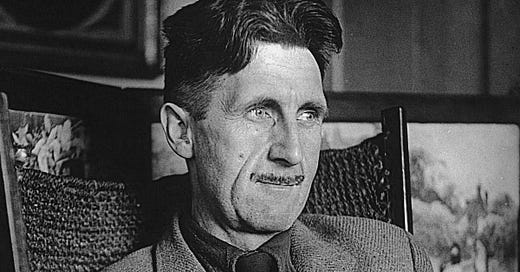
Unfair advantages
Early work is always awkward and bad — but getting so good at something it becomes easy will bring its own reward.
I was 22 years old the first time I published my first essay online.
I expected a viral sensation but it barely woke the crickets.
At that point I’d been writing in private for several years and harbored ambitions of “making it” as a writer. I had no clue what that meant in practice. But I figured my best course of action would be to start putting my ideas where other people could read them.
With a pre-med degree and literary ambitions in tow, I secured a job as an English teacher in Hong Kong and committed to writing one essay a week on a blog.
All the clichés about moving overseas to write are true. Leaving your home country does provide plenty of material. I imagined myself following the likes of Hemingway. But instead of being impoverished in Paris I was lodging with relatives in a centuries-old Chinese village.
Life all around me suddenly took place in Cantonese. I couldn’t leave my bedroom without running into interesting people and places.
As other expatriate writers can attest, there is never a shortage of ideas.
That said, little of what I wrote then is worth revisiting. My stuff was verbose and long-winded. I relied on big words and held the mistaken belief the best writers carried a thesaurus. I was too conscious of what I assumed other people wanted to read, which sterilized my thoughts and made them sound like everyone else’s.
I couldn’t figure out how to be authentic because I didn’t realize I should write in my own voice.
Early work, of course, rarely pans out. This is true for writers, but also for any new venture from athletics and violin to computer programming.
Everyone knows attempting something without practice will feel awkward and bad, but most people expect final-product results anyway.
I lived out that cognitive dissonance when I started my blog. I knew that I needed more reps but I still wondered why The New Yorker wouldn’t respond to my pitches.
This paradox helped me. I had no problem slogging through so many crappy blog posts because, at the time, I did not grasp how crappy they were. I overestimated my abilities because I lacked context. In that sense, I failed to see my early work for what it was — early work.
It’s not supposed to be what you call home about or print for the refrigerator, but I did.
Misguided as that overconfidence was, it silenced the internal doubt and skepticism that so often extinguishes creativity altogether. I’ve since been able to make a living as a writer by neutralizing the sentiments that usually derail early work.
Now, it’s worth pointing out three attributes that can make early work better: Proclivity, instinct, and taste.
Together, these amount to something like natural talent. When I first launched my blog, I had some degree of all three thanks to my reading habits.
I’ve always preferred old books, so I’ve developed a literary sensibility that public schools stopped teaching years ago. For whatever reason, today the books that teachers assign students and the ones adults pick up in Barnes & Noble do not contain the best writing in the world. That used to be the case, but not anymore.
So because of an early proclivity for the classics, I’ve had a head start sharpening my instincts and tastes with history’s greatest authors. I still read a lot to this day. Rarely does someone catch me without a book in hand. That’s been to my advantage and compensated for my lack of formal training.
Reading explains some of the success of my early work. The rest is more straightforward.
I write well because I write a lot.
I’ve done it nearly every day since 2016. Full-time since 2020. Between these essays, my financial writing for Opening Bell Daily, and book projects, I’m putting down some 2,000 words a day. When I worked at Business Insider, I’d write all day alongside the other reporters, and once everyone clocked out at 5 o’clock I would keep writing through evenings and weekends.
This is what I do for fun and for work.
Trite as this sounds, if you applied the same amount of time to another skill, say carving soap or cataloging clouds, you could make a living at it.
Again, early work starts out shapeless and frustrating and difficult. But with enough practice it becomes easy. Like breathing air. Few things are more rewarding than figuring out this puzzle: What is hard for others but easy for you?
Answering this opens the door to asymmetrical upside.
This is how you find your edge.
For me that thing is writing. Sure, I’m not Hemingway. But readers tell me I have a knack at translating complex concepts with clear and plain language. Simplicity can carry you far in life — especially when you apply it to a legacy industry like finance, as I have. So much of Wall Street exists behind a veil of jargon. Big banks like to operate with an air of exclusivity, though much of it is actually quite vanilla. It just takes the right communicator to break down the levers and incentives at play.
Remember, hard-earned expertise looks effortless. And it tends to pay well.
Plus, it’s one more thing that makes early work worthwhile.
















Thanks so much Daniel! Appreciate the shoutout.
Will share this in my newsletter on Friday, great piece man. One thing I love about Notes is how it surfaces older content. You wrote this two weeks ago but saw it on my timeline today.